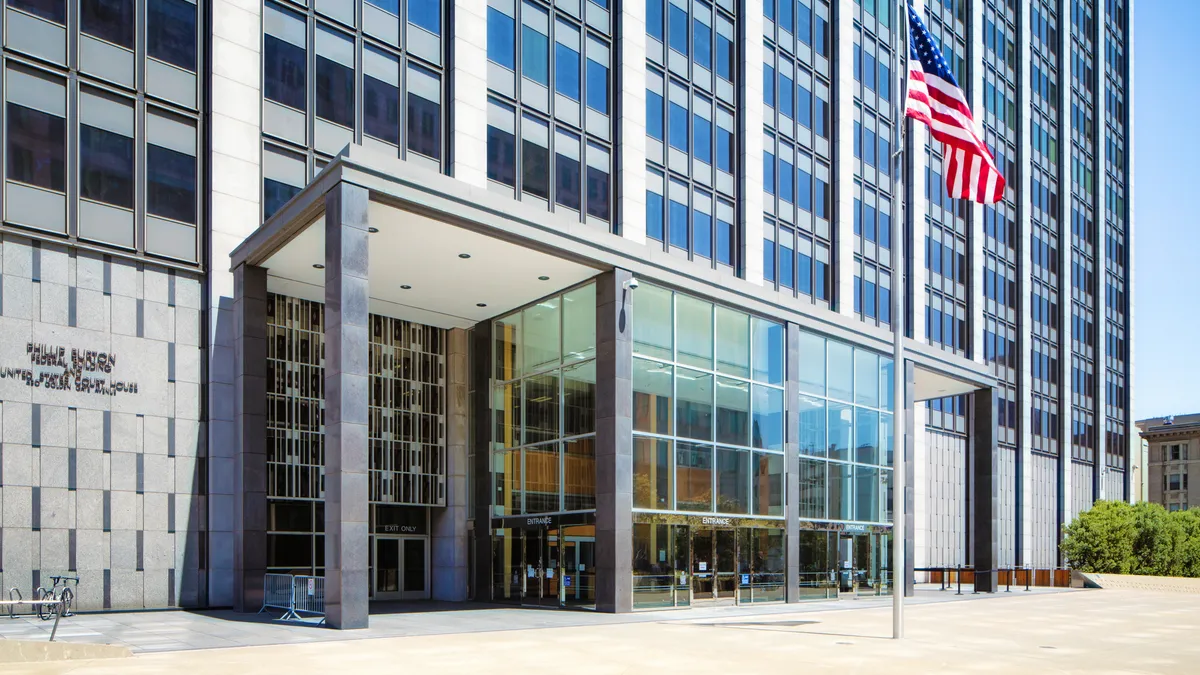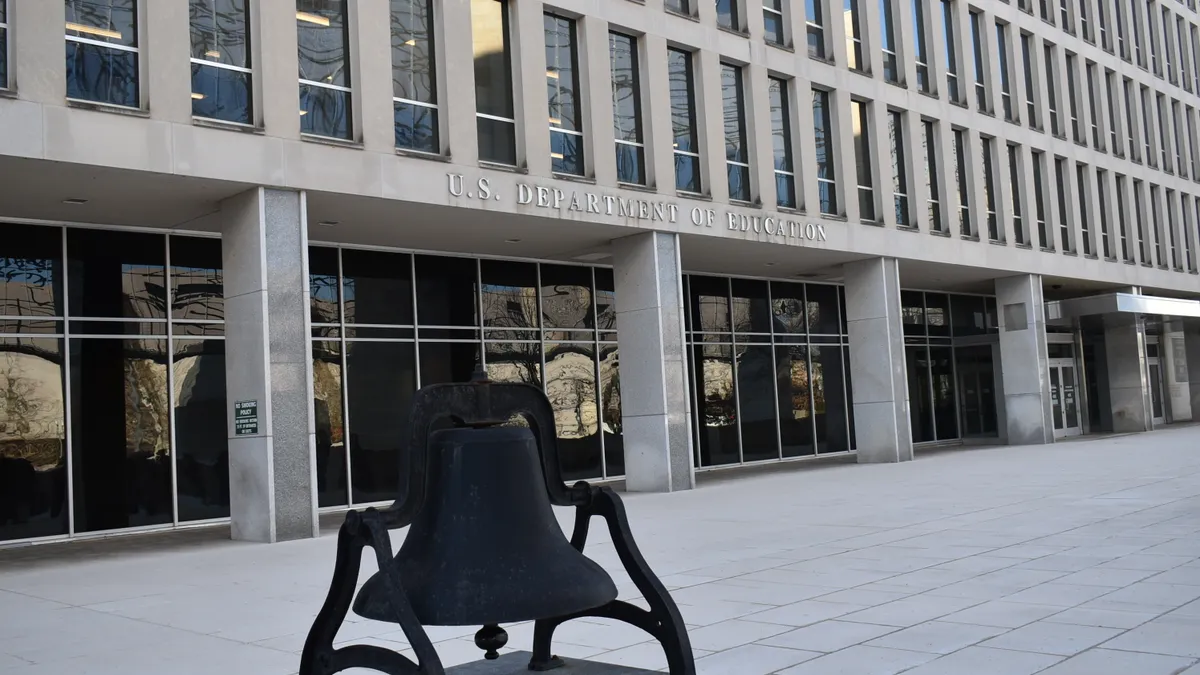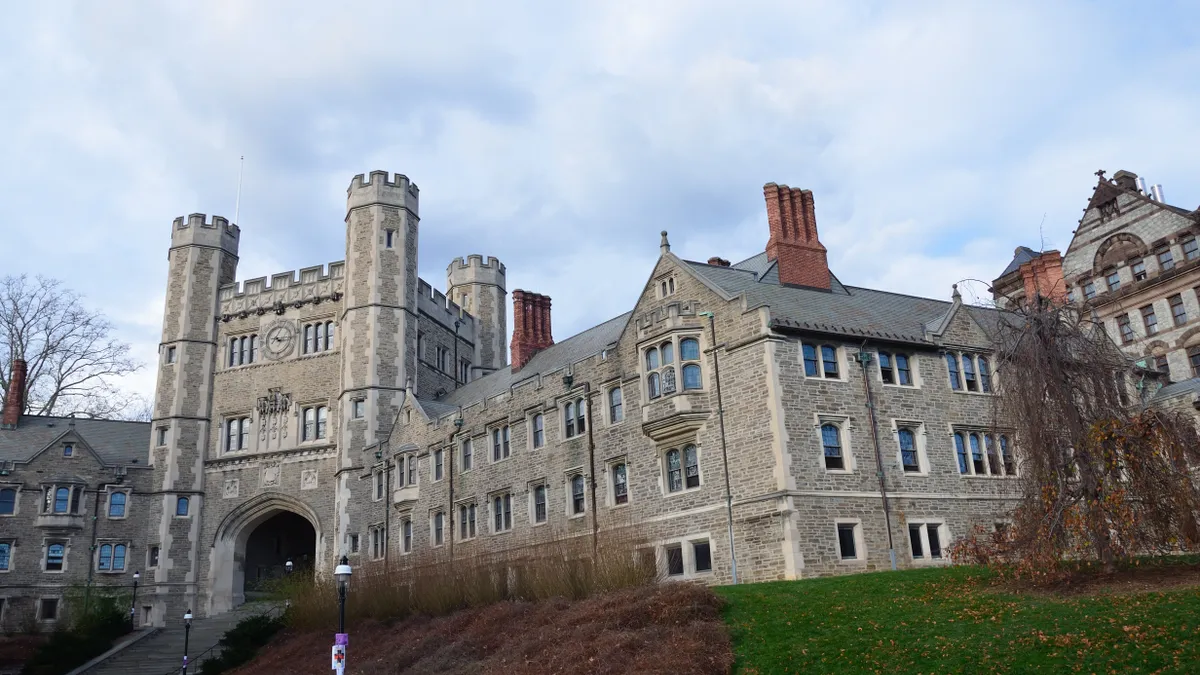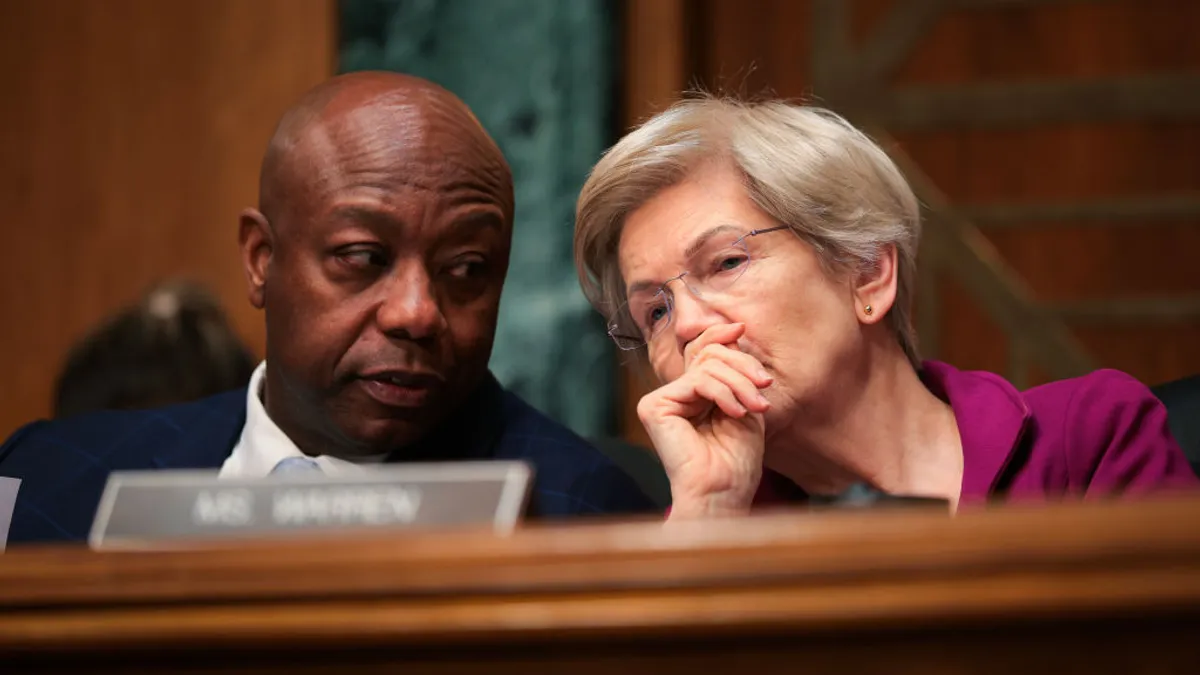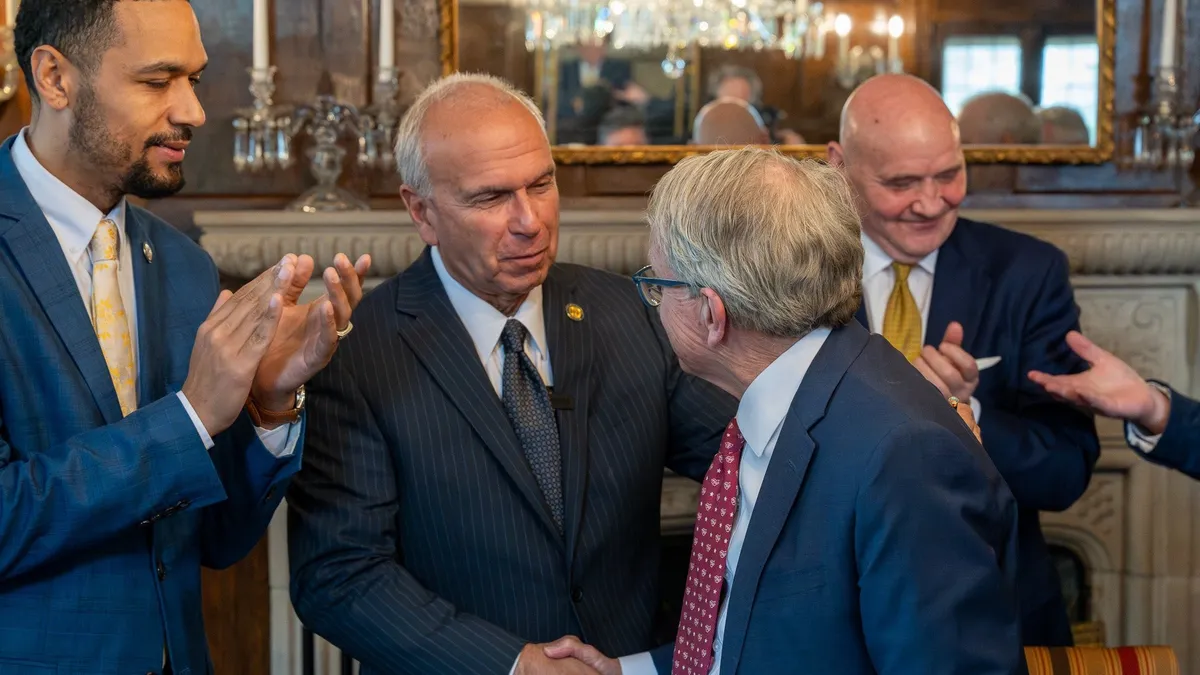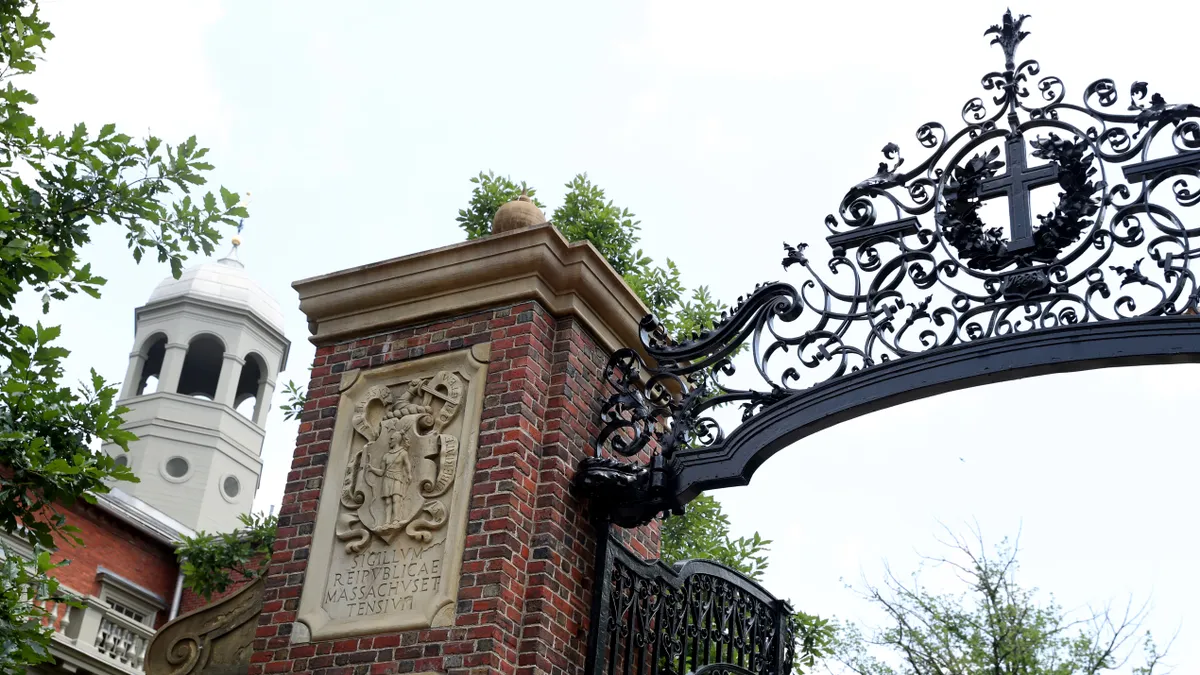A federal judge late Wednesday approved a massive class-action settlement intended to address allegations the U.S. Department of Education stonewalled hundreds of thousands of applications to a program that cancels student loan debts for borrowers whose colleges misled them.
U.S. District Judge William Alsup signed off on the agreement after taking a week to weigh final arguments in the three-year-old Sweet v. Cardona case. The case is about student debt relief that can be granted under the borrower defense to repayment program, which is separate from President Joe Biden's wide-ranging initiative forgiving up to $10,000 or $20,000 in federal student loan debt for some 40 million borrowers — a $430 billion initiative that is tied up in different court cases.
Alsup's decision sets the stage for the Education Department to automatically cancel debts for about 200,000 borrowers who attended 151 colleges, including shuttered large for-profit chains like ITT Technical Institute and still-operating institutions like Grand Canyon University. That would clear a total of about $6 billion in federal student loan debt.
The settlement agreement also calls for the Education Department to quickly make borrower defense to repayment decisions on debt cancellation for another 64,000 borrowers — or to discharge their debts if a decision can't be reached within specific timeframes based on how long they've been awaiting a ruling. This is projected to result in $1.5 billion in loans being cleared.
Another part of the agreement requires the department to smooth borrower defense applications for those who applied to the program after the settlement agreement was reached. Automatic relief will be granted for those borrowers, who number about 179,000, if the Education Department doesn't decide on their applications within three years of the settlement's approval.
"This settlement is not only fair, reasonable, and adequate but a grand slam home run for class members," Alsup wrote in an order approving the deal. "They originally sued just to get a decision one way or another on their applications. Now, they are getting total forgiveness in most cases."
Four institutions and college operators whose former students are covered under the deal opposed it: American National University, Chicago School of Professional Psychology, Everglades College and Lincoln Educational Services Corp. They are on the list of 151 colleges whose former students can receive automatic forgiveness, and they argued their inclusion denied them due process and damaged their reputations.
An appeal to the judge's Wednesday approval is likely, according to a statement issued by a trade group representing for-profit colleges, Career Education Colleges and Universities.
“The four intervenor schools made a compelling case that the Sweet settlement represents an unlawful overreach by the Department of Education and unfairly maligns over 150 institutions without any opportunity to respond,” Jason Altmire, CECU president and CEO, said in a statement. “We expect that the Ninth Circuit on appeal will recognize these fatal flaws and send the parties back to the negotiating table."
Alsup addressed the colleges' objections in his order approving the settlement.
The deal does not use standard borrower defense to repayment procedures, and the Education Department therefore can't use it as a basis to try to recoup loan discharge costs from the 151 institutions on the automatic debt relief list, he wrote. Institutions on the list would still have full due process rights if the Education Department were to take action against them in the future. And Alsup dismissed the idea that being included on the list of 151 colleges is "an impermissible scarlet letter."
"This order finds the list does not carry the necessary legal significance to justify denying final approval of the settlement," he wrote.
The Project on Predatory Student Lending, which represented the plaintiffs in the case, cheered the judge's decision.
"Throughout this case, our clients exposed a fundamentally broken borrower defense system and the urgent need for reforms to hold predatory schools accountable," Eileen Connor, president and director of the organization, said in a statement. "We are proud that this settlement with the Department of Education will help chart a more fair and accountable process for borrowers.”
Years of arguments over borrower defense to repayment
A winding path led to Wednesday’s ruling.
In 2019, borrowers filed a lawsuit against the Education Department, alleging that the Trump administration was improperly delaying decisions on their borrower defense claims. They worked with the department to reach a settlement in 2020, but that agreement unraveled when they learned the agency had been sending out blanket denials of borrower defense applications.
It wasn’t until roughly two years later — after the start of the Biden administration — that the Education Department reached a new settlement agreement with borrowers to provide automatic relief for most class members.
However, the colleges that objected to the plan argued that the deal sidesteps borrower defense regulations, denies them due process rights and damages their reputations.
They pointed out that the Education Department said attendance at one of the 151 listed colleges "justifies presumptive relief, for purposes of this settlement, based on strong indicia regarding substantial misconduct by listed schools, whether credibly alleged or in some instances proven."
A lawyer for one institution, the nonprofit Chicago School of Professional Psychology, also raised concerns that some students would have their debts cleared even though they’ve reached other settlements with their colleges providing financial relief.
Meanwhile, the department argued that federal law gives it broad power to “compromise, waive, or release any right, title, claim, lien, or demand” related to federal student loans. In court documents filed before the ruling, the department said it used this same authority to clear more than $11.4 billion worth of student loans for borrowers who attended several shuttered for-profit colleges.
A key question to answer before final approval could be issued was if Education Secretary Miguel Cardona has the authority to enter into the settlement, according to Alsup. The judge found nothing unusual about the secretary using his discretion to discharge student loan debts.
Alsup noted that officials have used that power during different presidential administrations in recent years, including $175 million in discharges announced in 2019 for 7,400 borrowers who attended Dream Center Education Holdings colleges and $5.8 billion announced this year for 560,000 borrowers who attended Corinthian Colleges. He also dismissed other regulatory objections.
"The Secretary has not exceeded his statutory authority or failed to follow the agency’s regulations," Alsup wrote.
Cardona faced a practical problem, Alsup wrote. About 443,000 people have pending borrower defense applications, but the Education Department has 33 claim adjudicators. Even if they each processed two claims a day and worked 52 weeks per year without vacations, it would take more than 25 years to work through the claims backlog individually.
"The approach taken here is group-wise and within the plenary settlement authority of the Secretary and Attorney General," the judge wrote.
Education Department officials are pleased with the settlement approval, Cardona said in a statement.
"Going forward, the Department of Education will continue to strengthen oversight and enforcement for colleges that mislead students and work to uphold the Biden-Harris Administration’s commitment to helping students who have been harmed,” he said.




